Lysol’s “Healthing” Campaign Misleads Moms
 |
|
Erin Switalski |
Last week, I had my first pre-natal appointment for little bean #2 (scheduled to appear in mid-November!). If you’ve had a baby through OB-GYN care, you know the one I mean. You go over all the do’s and don’ts of pregnancy with a nurse, they take your vitals, and then they send you off with a big bag of goodies, mostly containing formula and diapering advertisements. Sifting through my bag that night, one piece in particular caught my eye.
It’s an ad from Lysol, in which they advocate for new moms to “Stop just Cleaning. Start Healthing.” As I opened the 8-page booklet, I was dismayed to learn that “healthing” is apparently a call for increased use of disinfecting products in the home.
The ad shrewdly goes on to list some very bizarre statistics from a study of new moms done by the Global Hygiene Council in which they demonstrate that new moms may not be sure which germs are really harmful or not.
- 78% believe MRSA is harmful.
- Only 50% believe Campylobacter is a harmful germ.
Their solution: You can protect yourself from harmful germs by washing your hands frequently and disinfecting germ hot spots in the home. Germ hot spots are those frequently touched hard surfaces such as kitchen counters, fridge handles, door knobs, toilet flush handles, TV remote control.
What struck me is that these stats are all about what moms think of these germs, not about how these germs might affect a new baby’s health.
Of course, MRSA isn’t something I want my baby to get. But it also turns out that a home is a pretty unlikely place to contract it. And what does the CDC recommend to avoid it? Washing your hands with soap and water.
Campylobacter. Wouldn’t want my poor little one to get this buggy either, although sounds like if she/he did, it would work itself out. But the kicker here is that this is a food-borne illness, mainly associated with eating raw or undercooked poultry meat or from cross-contamination of other foods by these items. I don’t plan on giving my newborn a lot of chicken dinners. And again, the CDC recommends preventing this with hand-washing and good food handling practices. Not once do they mention using a disinfecting product
But okay, okay. I get it. I DO want my new babe to be healthy. The trouble is, spraying a bunch of disinfecting chemicals all over my house is not going to achieve that. In fact, by doing this, I would simply be introducing my baby to unnecessary chemical exposures.
I looked up the ingredients on the “Lysol Disinfectant Spray for Baby’s Room.” It includes: ethanol, water, butane, propane, ethanolamine, fragrance, isobutene, alkyl dimethyl benzyl ammonium saccharinate, t-butyl alcohol, MEA-Borate, MIPA-Borate, and ammonium hydroxide.
Ethanolamine, also known as monoethanolamine, is a known induce of occupational asthma. Why would I subject my baby to a chemical that can cause asthma?
Fragrance can contain 100 different ingredients, some of which could be allergens or even carcinogens. Because they don’t tell us what’s in there, we don’t know. What I don’t know, I avoid.
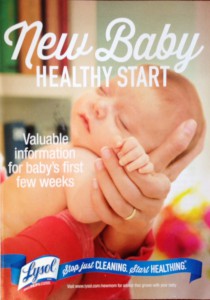
Ammonium hydroxide can release ammonia gas into the air, resulting in coughing, wheezing, irritation of the eyes, ears, nose, and throat, even more severe health effects at high exposures. Nope. Little peanut doesn’t need that.
Alkyl dimethyl benzyl ammonium saccharinate. This chemical belongs in the quaternary ammonium compound category, or as we say around the office, “quats.” Quats might just be the scariest ingredient in here. One of the interesting things about them is that certain quats can leave a residue that lingers on surfaces for up to one month. That’s one of the reasons why they are so effective at killing germs. Several quats are also known to cause asthma and skin rashes.
And I’m not psyched about the rest of the ingredients in that list either. Propane? Butane? The whole point of these is to ensure they propel the product out of the can—which in turn makes it more likely they’ll be inhaled.
Also, did you know that in order for disinfecting to be as effective as they claim, you are actually supposed to clean the surface first with soap and water? Kind of defeats the purpose of those “handy” disinfecting wipes!
The bottom line is that I want my baby to be healthy. And like every mother, I will do my best to ensure that. But instead of using disinfecting products with a host of hazardous chemicals in them, I opt for simpler solutions that are just as effective.
The CDC says that best way to prevent the spread of germs is to wash with soap and hot water. In fact, there’s never been a study that has been able to conclude that use of disinfectant products in an average home leads to any healthier outcomes for the people who live there compared to just using soap and water. Sure, disinfectant products will kill germs effectively…but no one has ever been able to prove that the higher level of germ killing is actually reducing sickness at all.
As for germ hot spots in my house, I use my trusty vinegar spray. While vinegar is not registered as a disinfectant with the EPA, studies have shown it to be as effective, or nearly as effective, as commercial disinfectant cleaners. Or, if you just must use a disinfectant to sleep at night, use one with a natural disinfecting chemical, like Thyme Oil. Our No Secrets partner CleanWell makes a line of these products.
So, Lysol, I think the best thing you can do for new moms is to stop over-selling unnecessary products. The best advice is for mom to use a little soap, water, and vinegar to keep her house clean, an important way to help baby stay healthy.
To learn more, read our report: Disinfectant Overkill

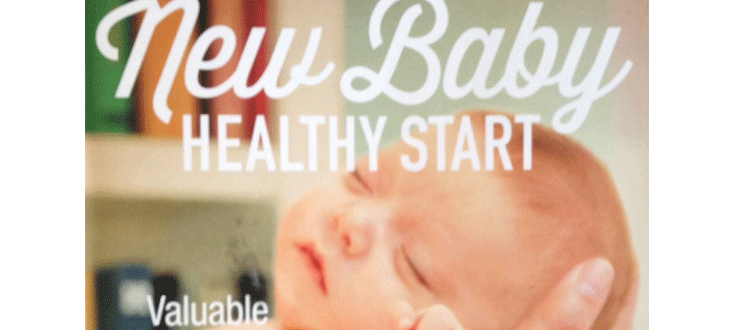
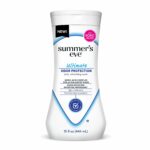
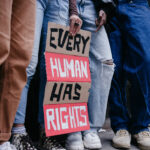
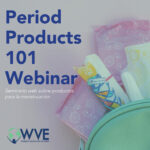


Start “healthing?’ Really Lysol? Chemicals + Baby + Enclosed Home = Health. Wow… I gotta say, that really ticks me off. It’s manipulation at it’s highest AND it’s worst. They’re aware that chemicals are getting a bad wrap, so instead of addressing that, they’re trying to brainwash people into connecting their cleaning products with healthier living. Pretty obvious to us but not to others.